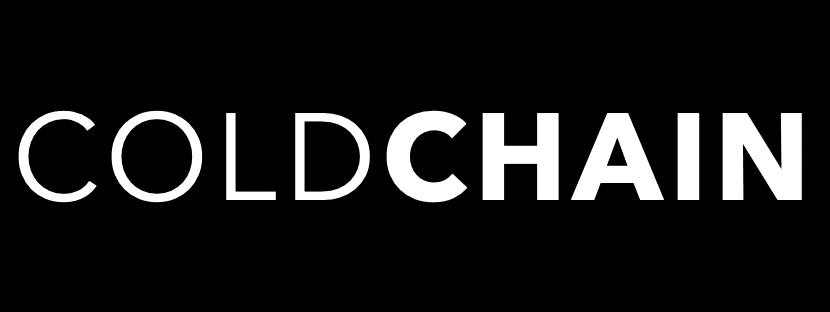Understanding the Evolution of Web3 The digital landscape has evolved rapidly with the advent of Web3, which represents the next phase of the internet. Web3 is characterised by decentralisation, blockchain technology, and enhanced user engagement. As a result, traditional marketing approaches, including SEO need to adapt to this new environment to ensure maximum visibility and success.
The Growing Importance of SEO Marketing In this dynamic Web3 era, search engine optimisation (SEO) marketing has become more critical than ever. SEO helps websites rank higher in search engine results pages (SERPs), driving organic traffic and increasing visibility. By embracing SEO strategies specifically tailored for Web3, businesses can leverage the decentralised nature of the internet and gain a competitive edge.
Fundamentals of SEO Marketing

Exploring Search Engine Optimisation (SEO) SEO is the practice of optimising websites to enhance their visibility and organic traffic on search engines. It involves various techniques, both on-page and off-page, to improve search engine rankings and increase user engagement.
Key Components of Effective SEO Strategies To unlock the power of SEO marketing in Web3, understanding its key components is crucial:
- On-Page Optimisation This involves optimising website content, HTML tags, meta descriptions, and URLs to make them more search engine friendly. By incorporating relevant keywords naturally and ensuring high-quality content, on-page optimisation enhances the chances of ranking higher in SERPs.
- Off-Page Optimisation Off-page optimisation focuses on building high-quality backlinks from reputable sources. This includes guest blogging, influencer outreach, content syndication, and participating in Web3 communities and forums. These backlinks improve website authority and boost visibility.
- Technical SEO Technical SEO involves optimising website structure, indexing, and crawling to enhance search engine visibility. This includes ensuring proper website architecture, using sitemaps, improving site speed, and optimising mobile responsiveness.
The Role of Keywords in SEO Marketing Keywords are the foundation of effective SEO strategies. Proper keyword research, analysis, and implementation are essential for targeting the right audience and optimising website content.
- Keyword Research Thorough keyword research helps identify the most relevant and high-traffic keywords for a particular industry or niche. Tools like Google Keyword Planner and SEMrush can assist in finding suitable keywords.
- Keyword Analysis and Implementation Analysing keyword competitiveness, search volume, and relevance helps prioritise target keywords. Implementing these keywords strategically in website content, headings, meta tags, and URLs can boost search engine rankings.
Leveraging Web3 for SEO Marketing
Embracing the Decentralised Nature of Web3 Web3’s decentralised nature aligns with the principles of SEO marketing. By leveraging decentralised platforms, businesses can tap into the vast Web3 ecosystem and promote their websites, products, and services through collaborations and partnerships.
Integrating Blockchain Technology in SEO Strategies Blockchain technology offers unique opportunities for enhancing SEO strategies in Web3:
- Smart Contracts for Trust and Transparency Smart contracts can be utilised to establish trust and transparency in link building, content collaborations, and influencer marketing. These contracts ensure fair and reliable interactions between parties, reducing the risk of fraud or manipulation.
- Tokenisation of SEO Efforts Tokenisation allows businesses to incentivise user engagement, content creation, and backlink generation. By rewarding users with tokens for their contributions, businesses can foster a community-driven SEO approach and build a loyal audience.
Optimizing Website Performance for Web3
Enhancing User Experience (UX) To succeed in Web3, websites must provide an exceptional user experience. Consider the following aspects:
- Responsive Design and Mobile Optimisation With the rise of mobile browsing, websites should be optimised for mobile devices. Responsive design ensures a consistent user experience across different screen sizes, improving engagement and search engine rankings.
- Page Speed and Loading Time Fast-loading websites are prioritised by search engines and offer a better user experience. Optimising page speed through caching, image compression, and minimising code can significantly improve search engine rankings.
- User-Friendly Navigation Intuitive and user-friendly website navigation enhances user experience and reduces bounce rates. Clear site structure, breadcrumb navigation, and prominent calls-to-action contribute to better engagement.
Implementing Structured Data Markup Structured data markup provides search engines with additional context about website content, enabling rich snippets and improved visibility in SERPs. Utilising schema markup, breadcrumbs, and site links search box helps search engines understand website information more accurately.
Content Strategy for Web3 SEO Marketing
Creating Engaging and Relevant Content Compelling content is crucial for Web3 SEO marketing. Consider the following:
- High-Quality and Unique Content Creation Developing informative, well-researched, and unique content establishes authority, encourages user engagement, and attracts natural backlinks. Focus on quality rather than quantity to provide value to users.
- Incorporating Visual and Interactive Elements Visual content, such as images, videos, and infographics, enhances user engagement. Interactive elements like quizzes, calculators, and polls can drive higher interaction and encourage social sharing.
Optimising Content for Voice Search Voice search is gaining prominence in Web3. Optimise content for voice search by targeting long-tail conversational keywords and providing direct and concise answers to user queries.
Harnessing the Power of User-Generated Content User-generated content, such as reviews, testimonials, and social media mentions, can significantly impact search engine rankings. Encourage users to generate content and engage with the brand to enhance visibility and trust.
Backlinks and Link Building in Web3 SEO
Understanding the Importance of Backlinks Backlinks remain a vital aspect of SEO in Web3. High-quality backlinks from reputable sources signal authority and relevance to search engines, boosting website rankings.
Ethical Link Building Techniques To build backlinks effectively in Web3, consider these ethical techniques:
- Guest Blogging and Influencer Outreach Contributing valuable content to authoritative websites and collaborating with influencers can generate quality backlinks and expose your brand to a wider audience.
- Content Syndication and Collaborations Sharing content on relevant platforms, partnering with industry peers, and participating in collaborative projects can help build valuable backlinks and establish authority.
- Participating in Web3 Communities and Forums Engaging in Web3 communities, forums, and discussions allows businesses to share insights, provide value, and build relationships, leading to organic backlinks and increased visibility.
Analytics and Measurement in Web3 SEO
Tracking Key Performance Indicators (KPIs) Monitoring relevant KPIs helps measure the effectiveness of SEO efforts. Consider these key metrics:
- Organic Traffic and Conversion Rates Tracking the increase in organic traffic and the conversion rates resulting from SEO strategies provides insights into the success of SEO campaigns.
- Rank Tracking and SERP Analysis Regularly monitoring search engine rankings and analysing SERP features can help adjust SEO strategies and identify opportunities for improvement.
Utilising Web3 Analytics Tools and Metrics Web3 offers unique analytics tools and metrics that can provide valuable insights:
- Blockchain-Based Analytics Platforms Blockchain-powered analytics platforms offer transparent and decentralised analytics solutions. They provide detailed data on user engagement, content performance, and token-based metrics.
- Token-Based Engagement Metrics Token-based engagement metrics enable businesses to measure user interactions, content contributions, and community participation accurately. These metrics can help identify the most engaged users and reward them accordingly.
Local SEO in the Web3 Landscape
Optimising for Local Search Results Local businesses can leverage SEO in Web3 to enhance their local presence. Consider the following:
- Creating and Optimising Google My Business Profile Optimising Google My Business (GMB) profiles with accurate business information, customer reviews, and location-specific keywords can boost visibility in local search results.
- Local Citations and Directory Listings Listing businesses on reputable local directories and platforms improves local SEO. Consistent NAP (Name, Address, Phone number) information across directories reinforces local relevance.
Incorporating Location-Specific Keywords Including location-specific keywords naturally in website content, meta tags, and URLs can help businesses rank higher in local search results.
Mobile SEO Strategies for Web3
Mobile-First Indexing and Optimisation With the majority of internet users browsing on mobile devices, mobile-first indexing has become crucial. Optimise websites for mobile devices by ensuring responsive design, fast-loading pages, and mobile-friendly content.
Accelerated Mobile Pages (AMP) Implementing Accelerated Mobile Pages (AMP) technology improves website performance on mobile devices. AMP ensures faster-loading pages, providing a better user experience and increased visibility in mobile search results.
Mobile-Friendly Design and User Experience Optimising mobile user experience involves creating intuitive navigation, easy-to-click buttons, readable fonts, and seamless mobile interactions. Prioritise user-friendliness and responsiveness to enhance mobile SEO.
Summary
In the Web3 era, SEO marketing plays a vital role in boosting visibility and driving success for businesses. By understanding the fundamentals of SEO, leveraging the decentralised nature of Web3, optimising website performance, developing a content strategy, implementing ethical link building techniques, utilising analytics and measurement tools, optimising for local SEO, and adopting mobile SEO strategies, businesses can harness the power of SEO marketing in the evolving digital landscape.
Frequently Asked Questions (FAQs)
A. What is Web3, and how does it relate to SEO marketing? Web3 represents the decentralised phase of the internet, characterised by blockchain technology and enhanced user engagement. SEO marketing in Web3 focuses on leveraging decentralised platforms, integrating blockchain technology, and adapting strategies for maximum visibility and success.
B. How can blockchain technology enhance SEO strategies in Web3? Blockchain technology can enhance SEO strategies in Web3 by enabling smart contracts for trust and transparency and tokenisation of SEO efforts. Smart contracts ensure fair interactions, while tokenisation incentivises user engagement and fosters community-driven SEO.
C. What are the best practices for optimising website performance in Web3? Optimising website performance in Web3 involves enhancing user experience through responsive design, fast-loading pages, user-friendly navigation, and implementing structured data markup. Additionally, leveraging blockchain-based analytics platforms and token-based engagement metrics can provide valuable insights.
D. How does voice search impact SEO in the Web3 era? Voice search is gaining prominence in Web3, requiring SEO strategies to adapt. Optimising content for voice search involves targeting long-tail conversational keywords and providing direct, concise answers to user queries.
E. What are some ethical link building techniques for Web3 SEO? Ethical link building techniques for Web3 SEO include guest blogging and influencer outreach, content syndication and collaborations, and participating in Web3 communities and forums. These techniques help businesses generate quality backlinks and build authority.
F. Which key metrics should be tracked in Web3 SEO analytics? In Web3 SEO analytics, key metrics to track include organic traffic, conversion rates, rank tracking, and SERP analysis. Blockchain-based analytics platforms and token-based engagement metrics offer additional insights into user engagement and content performance.
G. How can local businesses leverage SEO in the Web3 landscape? Local businesses can leverage SEO in the Web3 landscape by creating and optimising Google My Business profiles, optimising for local search results, and incorporating location-specific keywords to increase local visibility.
H. What are the mobile SEO strategies to consider in Web3? Mobile SEO strategies for Web3 involve prioritising mobile-first indexing and optimisation, implementing Accelerated Mobile Pages (AMP) technology, and designing mobile-friendly experiences. Responsive design, fast-loading pages, and intuitive mobile interactions contribute to mobile SEO success.



![Top Web3 PR Agencies in 2024 [Our Top Picks]](https://coldchain.agency/wp-content/uploads/2024/07/PR-7-600x338.png)